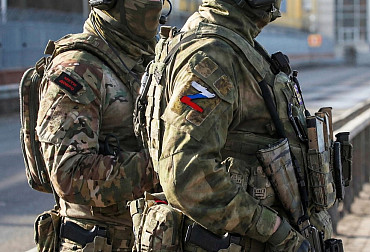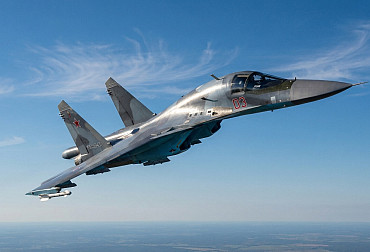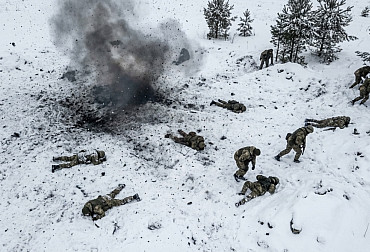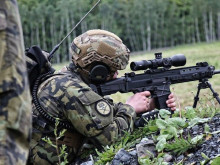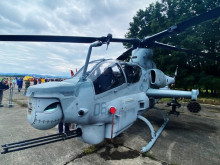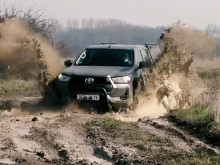A professional among professionals: a Czech soldier's view into the upper echelons of U.S. Army career education (Part 3)
Education is the foundation of everyone's skills and abilities, and being a military professional means a lifetime of working on your knowledge, skills and abilities. If you grew up in the environment of the units of the 4th Brigade, Rapid Deployment "Defense of the Nation" (4th Brn), it makes sense that its motto "where others fall short" becomes part of your DNA and you take the challenge of being sent to the United States Army Sergeants Major Academy (USASMA) to obtain a high quality education as a task where you must not fail. Notwithstanding the fact that we have been sending Army Warrant Officers to this school since 2004, you will find only up to ten graduates of this prestigious school in the current ranks of the Army, and I personally am the third Chief Warrant Officer of the 4th Armoured Division to be given the opportunity to study at this school. In the previous episodes I described the so-called pre-course or zero part of the training course and the 1st department and the 2nd department (out of a total of five). In this article, I will share my experiences in the 3rd (Department of Command Leadership) and 4th (Department of Professional Studies) departments.
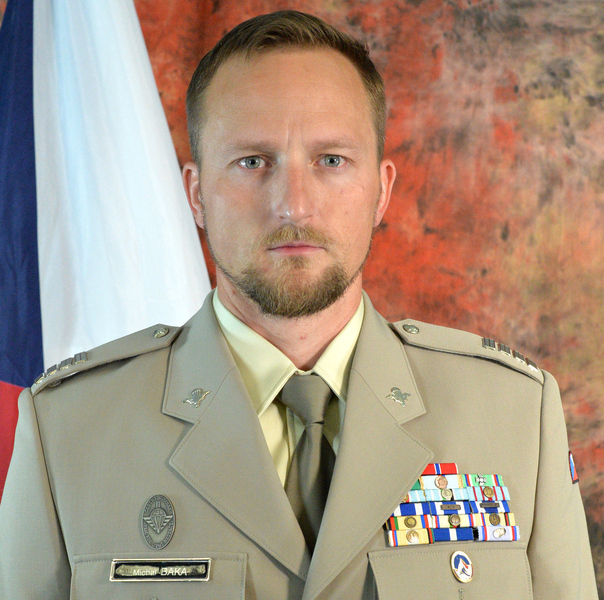
Department of Command Leadership - Case Study and Major's Exam
As one was already used to, the change of department consisted of a change of classmates and instructors. In my DCL class, I was the Deputy Class Commander, so I was in charge of relaying important information from the instructors towards the class, dealing with emergencies, and providing support and assistance with anything the Class Commander needed. Coincidentally, I held this position in the Leadership Department class, and it should be noted that even here, the pair of instructors, Mr. Todd and SGM Delegarza, who were put in charge and successfully guided us through the pitfalls of the department, taught us much more than I thought.
This block began with a set of lessons including a battery of tests that taught and tested the soldiers' understanding of building mental toughness, dealing with difficult life and work situations, and setting the right mindset. It was challenging not only linguistically (as these lessons contained a lot of psychology and technical terms), but also because all notes had to be taken by hand. The tests were always on the same day after a set of lectures, so we had a short time to summarize our thoughts and understand the material taught, but this was how the rules were set up and we had to deal with it.
An interesting experience in this department was writing essay tests, which took three hours and were solved in the form of a case study. A week before the test, one was given about 20 pages of a description of a battle or combat situation and had to prepare the text as a basis for the material just discussed. I was given the Battle of Samarra, also known as Operation Baton Rouge, which took place in Iraq during 2004. Combining leadership theory along with a real-life scenario as a teaching method gave me the opportunity to grasp the substance in detail and with a good understanding. Although I didn't know the key for the assessment (and honestly it still remains a mystery to me until now), I ended up passing both tests above 94%, which was quite a good score.
My term paper this semester was on the topic of ethics in the military, and I wrote it on the topic of drugs in the military. I was trying to highlight a problem that the Global War on Terror (GWOT) generation of warriors is facing. Taken objectively and subjectively - overuse of painkillers, traumatic brain injury, post-traumatic stress disorder - these are all things that are consequences of the GWOT among veterans and active duty soldiers, and it's a real problem that the US armed forces are facing. This thesis gave me the opportunity to gain insight into the US SOCOM environment to better understand their culture and especially the climate that existed in this community, which was great preparation for the oral exam.
Also, in this department, it was a rule that no two exams would be the same, which included the oral exam. At DCL, you took the oral exam in front of strangers, which eliminated any empathy or dislike towards you from the instructors. I took the exam in front of Major Gavin Paton OBE, a former Chief Warrant Officer of the British Army and holder of the title Officer of the Order of the British Empire. For me personally it was another challenge and a great honour to not only meet this man but to get his feedback on my exam, my knowledge and skills.
The assumption that DCL would be the most challenging subject and the imaginary "assessment killer" turned out to be true in the end. However, I must admit that I really enjoyed this course and rate it as very beneficial, regardless of its difficulty. My overall grade in the end was 91.08%, which was an A-. School had moved into the second half and I was facing the "Department of Professional Studies".
Department of Professional Studies - The Clash of Military Capabilities with the Civilian World
The penultimate semester focused on the application of military methods of leading people and contrasting the civilian world. I must admit that I was not actually looking forward to this course at all, however, the approach of the instructors Mrs. Hunt and SGM Cornett managed to make this course not only a very interesting time spent at USASMA, but both instructors also created and moderated very interesting discussions regarding the clash of the military mentality with the civilian one.
This course was filled with discussions on a variety of topics, with each one being graded. Small essays were also worked on in order to intertwine military history with the present, hybrid threats and asymmetric warfare were addressed, or the clash of military culture with the civilian world and how they are intertwined. I chose the clash of military and civilian entities as the topic for one of the three essays and wrote about Blackwater and their problems. I have to say that it was a very rewarding topic, as we are seeing quite a lot of private company involvement in the modern battlefield today, something that affects mission accomplishment and must be considered when planning operations at more than just the strategic level of command. The final score for this essay of mine was 95%, which personally motivated me to try to achieve an even better score for future essays.
The next essay focused on the clash of military history and the present day and I chose the Battle of Britain and its comparison with the conflict in Ukraine. I laid the argument on a projection of the similarities of three basic features which were modern technology, the will of the nation and foreign aid. I just want to point out that the argument was mainly about argumentation and encouraging critical and creative thinking, there was no attempt at political overtones as strict adherence to apolitical thinking was one of the principles of the work at this school. In the end, the mark for this paper was also 95%, as minor grammatical errors and imperfect turns of phrase were still a barrier to full marks.
This semester was interspersed with a week off, which unfortunately was not a week off for the international students as we had an organized trip to Washington D. C.
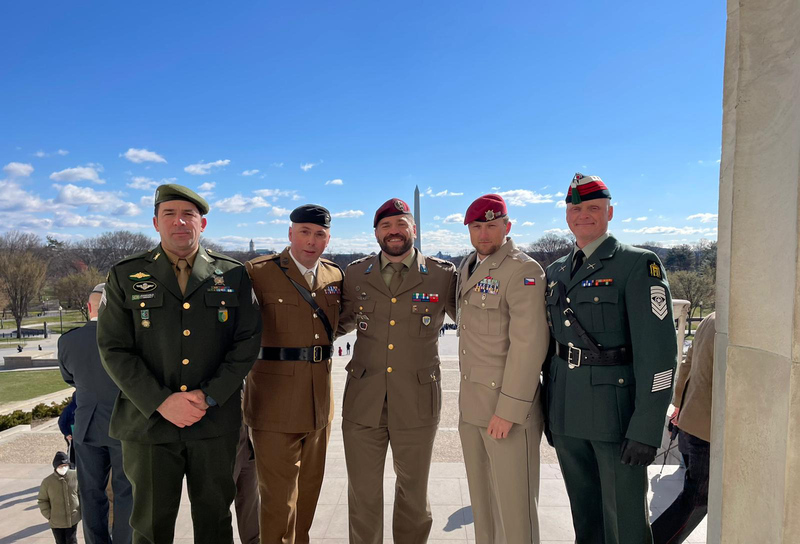
Instead of a light rest and a break from the pace of studying that only American students enjoy, we visited the sights of the US capital during the day and then spent the night catching up on essays and discussion forums. At any given moment it was not enjoyable at all, in fact it was rather stressful as you have to work late into the night at the hotel and you can't really enjoy the program of your visit, nor can you maximize your schoolwork. Subsequently, the last essay was handed in and the end of this semester was slowly approaching. A couple of graded briefings and subtests still remained to come, but time suddenly began to pass more quickly.
One of the subtests, then, indirectly related to this semester, was a review of the ACFT PE standard. This is a test of physical fitness followed by a BMI measurement. This test consists of six events, which are deadlift (maximum 340 lbs), medicine ball throw (maximum 12 m), shuttle run with weight (1.30 as best performance), push-ups with handstand (maximum 60 push-ups in two minutes), plank (maximum 3.5 minutes), and two-mile run (maximum 14 minutes). All events must be completed within 60 minutes and the maximum possible score is 600. My score in this test was 576 points, with the deadlift, plank and shuttle run disciplines scoring full points, push-ups scoring 97 and the run scoring 95. Only the medicine ball throw was for 84 points, which deprived me of a better result. This style of testing overall physical fitness appealed to me greatly and regardless of its difficulty, I believe that a similar program is the future of physical training for modern armies and it is only a matter of time before the U.S. Army's experience with this program is reflected in other armies. The BMI measurement, which is a direct part of the PE exam, is a separate chapter, but was no obstacle to passing the ACFT as a whole, and with an overall grade of 96.73% for DPS, my last semester in the Department of Joint, Interagency, Intergovernmental and Multinational Operations was ahead of me. But I will tell you about that in the last part of this series.












